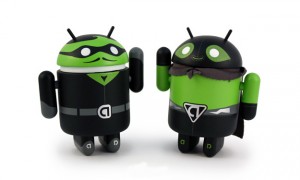 Two weeks ago, VMware held their annual gathering of all things virtual. Las Vegas was buzzing with technology from all parts of the globe. While I did not attend in person, I was there in spirit (or in the cloud as some would put it). There were many great announcements that came out of the conference. While many revolved around vSphere 5 and storage technology, there was one particular announcement that caught my attention.
Two weeks ago, VMware held their annual gathering of all things virtual. Las Vegas was buzzing with technology from all parts of the globe. While I did not attend in person, I was there in spirit (or in the cloud as some would put it). There were many great announcements that came out of the conference. While many revolved around vSphere 5 and storage technology, there was one particular announcement that caught my attention.
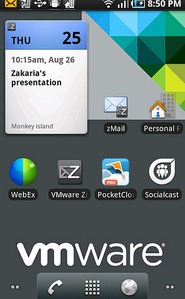 On August 30th, VMware announced their new venture called Horizon Mobile. This new virtualization platform allows for a user to run a separate virtual phone on their android device. This effectively offers the user both a work phone and a personal phone on the same hardware with just the push of a button. This benefits both the user and the supporting organization behind it. IT departments will be allowed to push out corporate policy changes to mobile devices without effecting the personal usage of a phone. On top of this, a business would not have to incur the extra cost of having to issue a separate device to an employee when all they will need to do is just push out a software update. The same goes for retrieval after an employee has left the organization as all that is needed is a remote wipe of the business OS instead of trying to track down the hardware.
On August 30th, VMware announced their new venture called Horizon Mobile. This new virtualization platform allows for a user to run a separate virtual phone on their android device. This effectively offers the user both a work phone and a personal phone on the same hardware with just the push of a button. This benefits both the user and the supporting organization behind it. IT departments will be allowed to push out corporate policy changes to mobile devices without effecting the personal usage of a phone. On top of this, a business would not have to incur the extra cost of having to issue a separate device to an employee when all they will need to do is just push out a software update. The same goes for retrieval after an employee has left the organization as all that is needed is a remote wipe of the business OS instead of trying to track down the hardware.
With the rise of the android personal phone, most users do not want to carry a second one just to be able to receive work calls and email. The two mobile instances will be separated at the core, but allow for some overlap. In a world where android viruses are starting to become more present, any such mayhem caused to the personal side of a phone will not effect the business side. On the other side of the spectrum, if the user is working on a business email and gets a personal phone call, a notification will pop up and allow them to answer while not leaving the virtual instance on the phone.
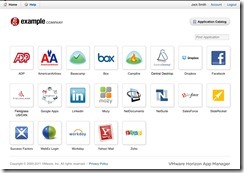 Combined with this is the Horizon Mobile Manager. This application is the heart and sole of the mobile instance, allowing for application and policy changes to the work side of the phone as well as a health check of the mobile instance. A separate application catalogue has also been included to ensure that all proper licenses can be handled by the company instead of the user. VMware has even included the option to push out these changes as an Over-The-Air update to phones connected to a cellular network.
Combined with this is the Horizon Mobile Manager. This application is the heart and sole of the mobile instance, allowing for application and policy changes to the work side of the phone as well as a health check of the mobile instance. A separate application catalogue has also been included to ensure that all proper licenses can be handled by the company instead of the user. VMware has even included the option to push out these changes as an Over-The-Air update to phones connected to a cellular network.
This new tech also raises several questions as to how you can have two completely separate phones under one piece of hardware. The current market for GSM technology ties everything to the SIM card in the phone. Your mobile number and data usage are all tracked on this. This means that you cannot get two different phone numbers for the same phone and raises a few questions.
- How will you be able to answer your work phone calls and your personal ones on the same device without additional hardware?
- How will corporate and personal voice/date usage be accounted for since most providers do not offer an unlimited plan anymore?
- Who will be responsible for possible software problems inside the virtual instance?
I search around for the answer to these questions and did not come up with much. However since this announcement was nothing more than a preview of things to come, I assume things will all be ironed out when it launches in a few months.
The tech demos I saw also showed a lack of an in handset security feature. While I might not be so keen on lending someone my work phone to play with or make a call, I would be more likely to lend them my personal phone. All the demos showed off how a user can switch to the other profile with just the press of a button. What I’d like to see is some sort of pin code protecting this feature. If I lend my phone to a friend and they accidentally hit the button, they could start making calls from my work number without even knowing it.
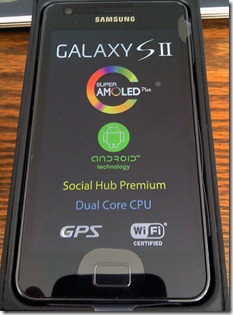 So “Why is this so important to me?” you may be asking yourself. As it just so happened, I recently purchased the new Samsung Galaxy SII phone and have been enjoying it. I’ve overclocked the dual core cpu up to 1.6Ghz while decreasing the voltage to maintain battery life. This works very well for me with this announcement as Samsung was listed as one of the hardware partners and several press announcements and blogs have indicated that Horizon Mobile is being designed to launch initially on the Galaxy SII.
So “Why is this so important to me?” you may be asking yourself. As it just so happened, I recently purchased the new Samsung Galaxy SII phone and have been enjoying it. I’ve overclocked the dual core cpu up to 1.6Ghz while decreasing the voltage to maintain battery life. This works very well for me with this announcement as Samsung was listed as one of the hardware partners and several press announcements and blogs have indicated that Horizon Mobile is being designed to launch initially on the Galaxy SII.
I look forward to the coming months as more information comes out and I hope to be one of the few people who get to launch with this application.
For more information on Horizon Mobile and the Horizon Mobile Manager, check out the website http://www.horizonmanager.com/
 We’re just a little over a week away from Tech Field Day 13 and I’m proud to say I’ll be there as a delegate! For those of you who don’t know, the Tech Field Day series (a GestaltIT production) is a chance for vendors and members of the tech community to come together and discus their latest product innovations. These sessions are broadcast live and are joined by the greater community on twitter. Now for those of you familiar with the process, you might be saying “Sean, that was an over simplified explanation” and you’re right, it was. Delegates are highly technical and won’t pull any punches when asking questions, so presenters need to be on top of their game and knowledgeable about all aspects of the products. Nothing is really off limits, the only rule is no throwing things.
We’re just a little over a week away from Tech Field Day 13 and I’m proud to say I’ll be there as a delegate! For those of you who don’t know, the Tech Field Day series (a GestaltIT production) is a chance for vendors and members of the tech community to come together and discus their latest product innovations. These sessions are broadcast live and are joined by the greater community on twitter. Now for those of you familiar with the process, you might be saying “Sean, that was an over simplified explanation” and you’re right, it was. Delegates are highly technical and won’t pull any punches when asking questions, so presenters need to be on top of their game and knowledgeable about all aspects of the products. Nothing is really off limits, the only rule is no throwing things. As you can see, we have some well established vendors, some new ones, and 1 blank space (that company will be revealed later). I expect we’ll see some updates on existing product lines as well as some new announcements
As you can see, we have some well established vendors, some new ones, and 1 blank space (that company will be revealed later). I expect we’ll see some updates on existing product lines as well as some new announcements









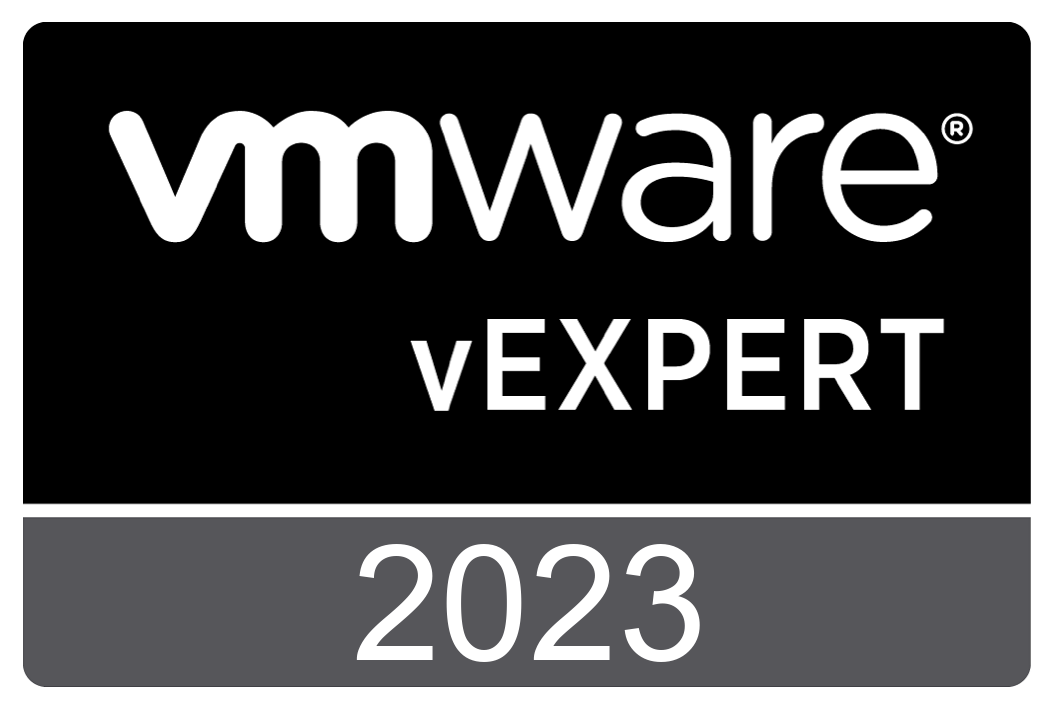

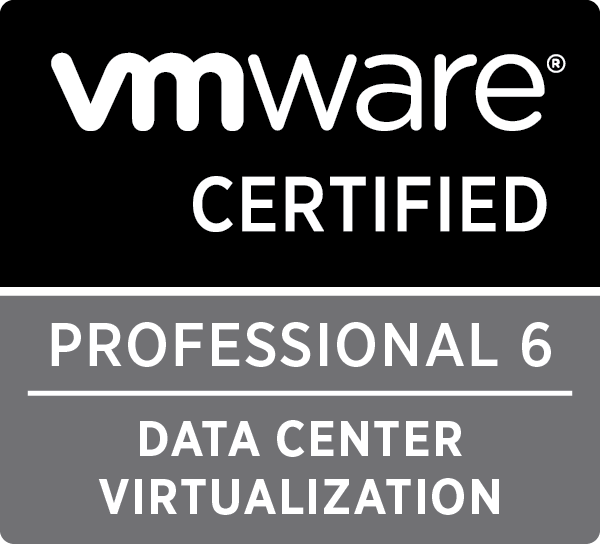


 Twitter
Twitter LinkedIn
LinkedIn RSS
RSS Youtube
Youtube Picasa
Picasa Email
Email
